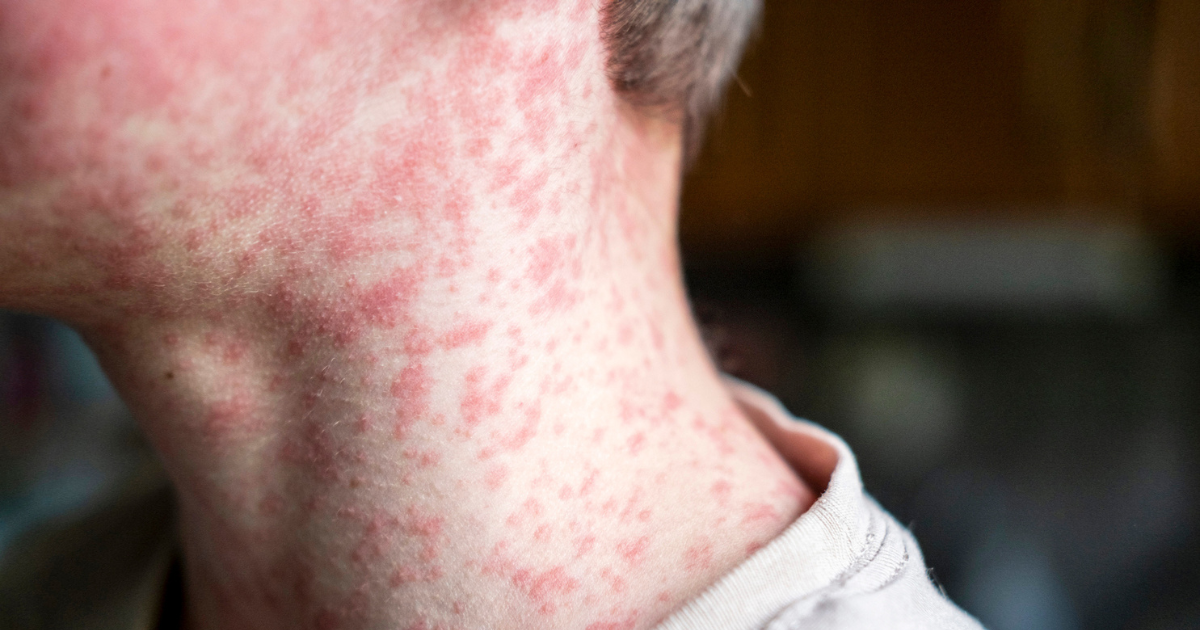9 things you should know about measles

In light of the ongoing measles outbreak centered in Texas and New Mexico, we want to provide guidance on measles immunity, screening and testing.
Here are nine of the most common questions we’re hearing and the information you need to know to protect yourself and your family.
1. What is the risk here in Omaha?
The risk of measles in Nebraska is currently low, with no reported cases. However, as the outbreak grows, the chances of imported cases increase.
2. What if I am traveling to an area with an outbreak?
If you plan to travel to an area with an outbreak (which includes Texas, among other states, as well as most international travel), ensure you have immunity to measles as discussed below.
3. What are measles symptoms?
Symptoms typically appear 1 to 2 weeks after infection but can take up to three weeks. Measles symptoms include:
- High fever.
- Runny nose.
- Feeling unwell with body aches.
- Conjunctivitis (red, bloodshot eyes).
- Flat, blotchy red rash that starts at the hairline and spreads downward.
4. How contagious is measles?
Measles is a highly contagious virus. If you are not immune and are exposed, there is a 90% chance you will get infected. People are highly contagious four days before the rash starts and four days after the rash appears.
The virus spreads through the air when an infected person coughs, sneezes, or talks.
5. How is measles treated?
There is not a specific approved treatment for measles, and care is mostly supportive. However, there are a few things that can help with symptoms.
Supportive care for measles:
- Fluids
- Rest
- Acetaminophen
- Vitamin A supplement*
*Consult physician for supportive care guidance
6. Does Vitamin A prevent or treat measles?
Vitamin A does not prevent measles. Vaccination is the only way to help prevent infection. The use of vitamin A in the treatment of measles should only be done in consultation with a healthcare provider.
7. How effective is the measles vaccine?
The MMR vaccine (measles, mumps, rubella), is highly effective:
- One dose provides 93% protection.
- Two doses increases protection to 97%.
Children currently receive two doses of the MMR vaccination at 12 to 15 months and again at 4 to 6 years.
Those who were born prior to 1957 are presumed to have been infected with measles, thus likely have lifelong immunity.
8. Do I need a measles booster?
- If you have received two documented doses of the live MMR vaccine, no booster is needed.
- If you were born between 1957 and 1967, you may have received an inactivated measles vaccine, rather than the currently recommended live vaccine. Check your records to ensure you have had two doses of the live MMR vaccine (at least 28 days apart).
- For those who do not have evidence of immunity, two doses of MMR are recommended, with doses being at minimum 28 days apart.
- Infants 6 to 11 months can receive an early MMR dose in certain scenarios. They will still need the standard two-dose series starting at 12 to 15 months.
9. Who should not receive the MMR vaccine?
The MMR vaccine includes a live virus and people with severe immunocompromising conditions should not receive it. This includes:
- Organ transplant recipients.
- Patients on long-term immunosuppressive therapy.
- Those with hematologic or solid malignancies.
- Patients undergoing chemotherapy.
- Individuals with certain congenital immune deficiencies.
- People with advanced HIV.
Therefore, it is critical to ensure that close contact with such people are vaccinated. Isolation from immunocompromised individuals is not required after receiving the MMR vaccine.
Make sure you and your family are protected by scheduling a primary care appointment online or by calling 800.922.0000.



